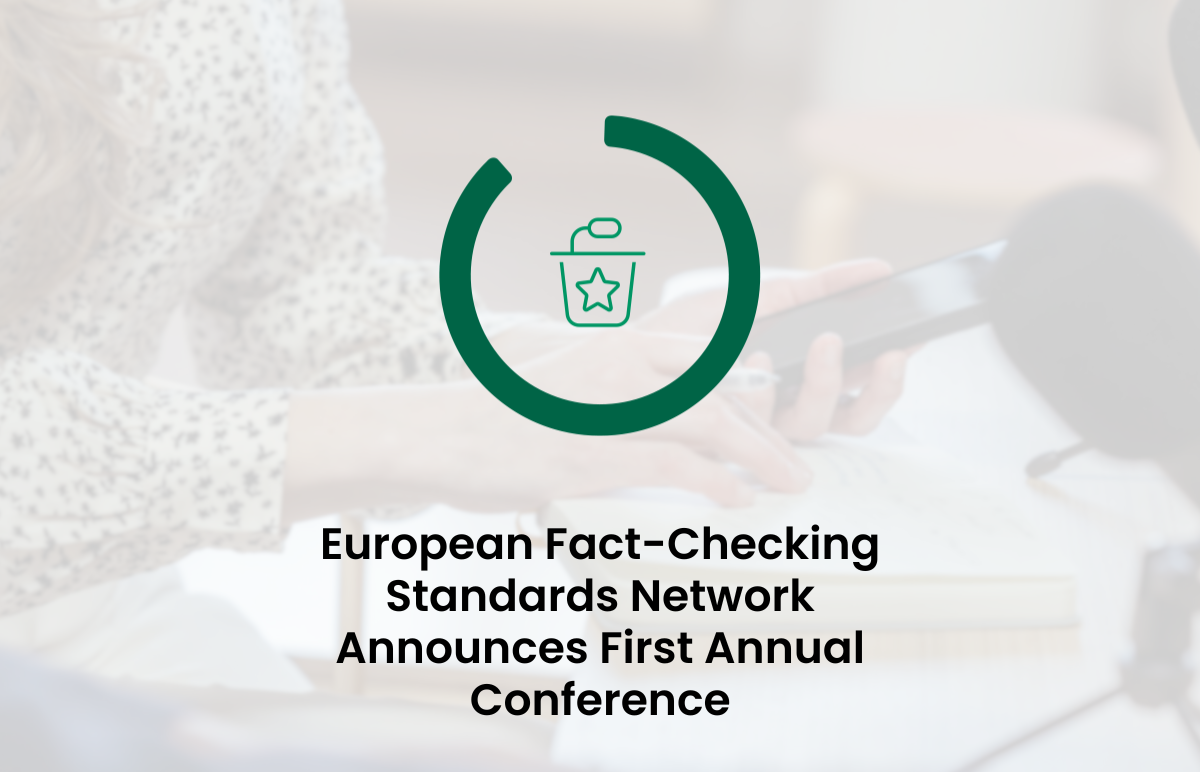
23 September 2024 – The European Fact-Checking Standards Network has announced its first annual conference to take place in Brussels, Belgium on Tuesday, 29 October 2024.
The day’s sessions will cover a range of topics impacting fact-checkers and the anti-disinformation community across Europe. Among the highlights is a discussion on the harassment fact-checkers face, where EFCSN members will share their personal experiences. Another key session, “Leveraging Fact-Check Data in the AI Revolution,” will explore the opportunities and challenges that AI presents for the fact-checking field.
Throughout the day, attendees can also expect discussions on topics like pre-bunking and the influence of both foreign and domestic disinformation on the media landscape in European countries. Speakers from the fact-checking community, platforms, and policymakers will be featured across the sessions.
EFCSN coordinator, Stephan Mündges said, “This conference is an opportunity for the fact-checking community in Europe to collaborate with each other and with those invested in our work. As a community, we are better equipped to stand against the rising spread of mis- and dis- information when we have these opportunities to come together to share knowledge and work toward our common goals.”
In addition to the public conference, the EFCSN will also bring together partners participating in the FactCRICIS project, an initiative led by the EFCSN and co-funded by the European Union, focused on building a climate expert database and AI-powered fact-checks repository.
The conference will be held at the nhow Brussels Bloom Hotel located at Rue Royale 250 starting at 10 AM. Registration is free of charge, but obligatory for attendance.
Register for the conference at efcsn.com/conference-2024/. Follow the EFCSN on X, Threads, and LinkedIn for regular updates about the event.
This event is co-funded by the European Union. Views and opinions expressed are however those of the author(s) only and do not necessarily reflect those of the European Union or the European Commission. Neither the European Union nor the European Commission can be held responsible for them.